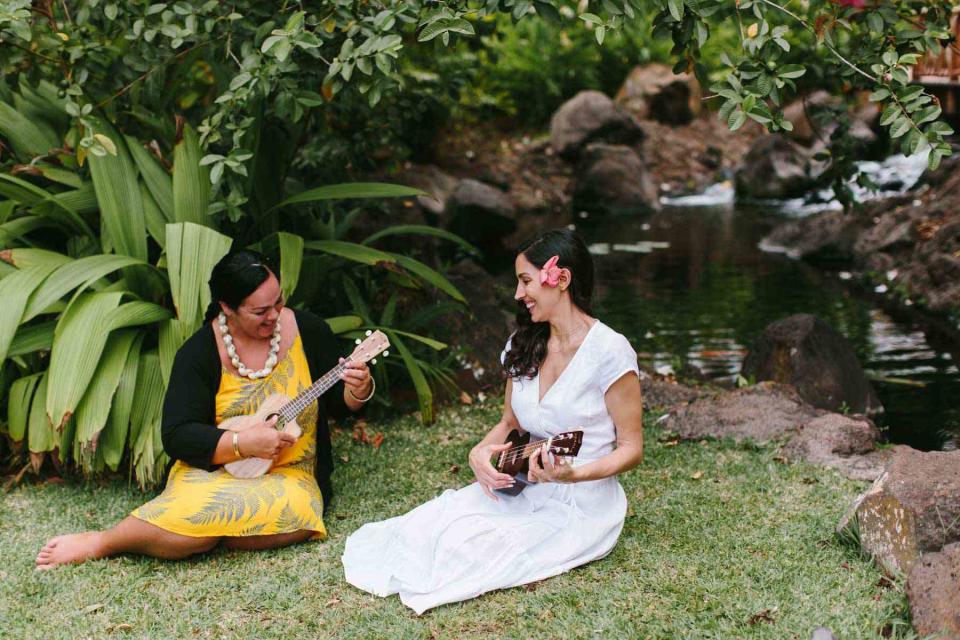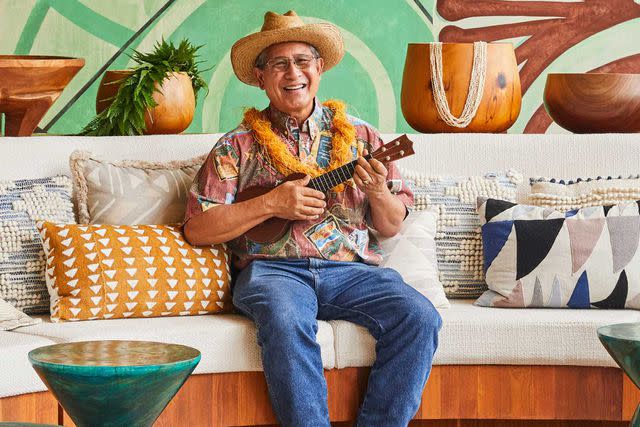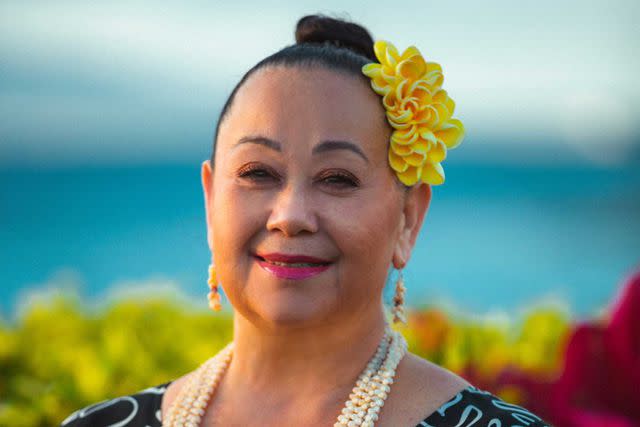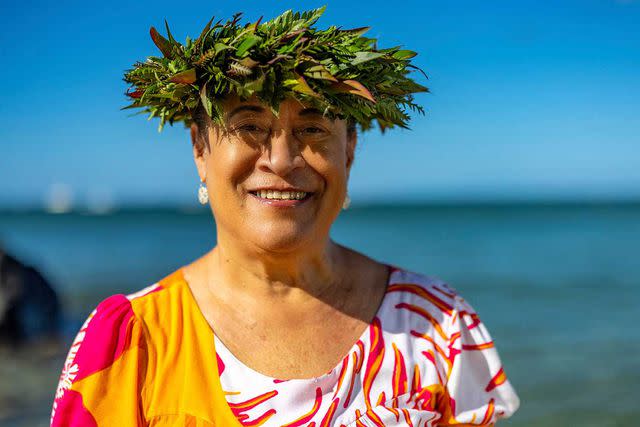How to Have a More Thoughtful Visit to Hawaii, According to Hawaiian Natives
As Hawaiians work to make tourism more enriching and more sustainable for locals and visitors alike, a T+L contributor meets the cultural ambassadors dedicated to sharing their aloha.

Courtesy of Grand Wailea, a Waldorf Astoria Resort
On a family trip to the islands of Hawaii and Maui last June, I got a swift education in the challenges facing this ever-popular destination. When we arrived at Rainbow Falls, in Hilo, I was shocked to see a gaggle of tourists hopping over a rope barrier and climbing a tree for photos — despite the many signs asking visitors to stay out of the branches.
Of course, not all who go to Hawaii are inconsiderate of the state’s resources. But with visitor numbers once again on the rise — the state saw 6.8 million arrivals in 2021 — so too is the pressure to manage the crush. It’s not just a question of natural riches: Hawaiians, and in particular Native Hawaiians, are trying to prevent the archipelago’s history from being erased and its culture being appropriated, distorted, or disrespected — even if that’s sometimes done unwittingly.

Courtesy of Montage Kapalua Bay
“There’s much more to Hawaii than sunsets and tropical drinks,” says Silla Kaina, the cultural ambassador at Montage Kapalua Bay. “It’s our responsibility to teach visitors what makes Hawaii so important to the Native people.” Here, six of the state’s most influential practitioners share how visitors can forge a deeper connection with the islands.
“When I started here in the early 1980s, the idea of a cultural ambassador was nonexistent. I shared what I knew after work and on my own time,” says Daniel “Kaniela” Kahikina Akaka Jr., Kahu hānai, or keeper of the culture, of the living culture department at Mauna Lani, Auberge Resorts Collection, Hawaii. “But I’ve always felt that every place should have one. Every place has a story to be told. I love sharing our culture with anybody who is willing to sit down, listen, and understand. At my age, it’s about passing the torch — passing on the pearls of wisdom that have been shared with me over the years.”

Nicole Franzen/Courtesy of Auberge Resorts Collection
Cultural programs at Mauna Lani, Auberge Resorts Collection, include lei-making, ukulele lessons, hula lessons, hikes to see petroglyphs along the Ala Kahakai trail, and a walking tour of Kalāhuipua‘a, a historic area on the resort’s grounds.
“The more we can have an honest dialogue with our visitors, the more their appreciation of Hawaiian culture grows,” shares Wendy Tuivaioge, the director of Hawaiian programs at Four Seasons Resort Maui at Wailea. “We call it ‘talking story.’ As I’m teaching lei-making, weaving coconut leaves, or hula, it’s the interaction —the questions and answers that are shared — that is so deeply meaningful. Sharing these local customs with visitors is the ultimate way for us to keep them alive.”

Courtesy of Four Seasons Hotels and Resorts
Four Seasons Resort Maui at Wailea offers lessons in palm-frond weaving and hula. Guests can also observe the rehearsals of one of Hawaii’s top hula groups, which take place at the resort on Thursdays.
“I love bringing in practitioners who are masters in certain things,” says Luana Maitland, director of cultural events and activities at Outrigger Reef Waikiki Beach Resort and Outrigger Waikiki Beach Resort, Oahu. “For example, the Friends of Hokulea & Hawaiiloa, who restore old canoes, have worked on all the canoes at Outrigger — we have some that are over a hundred years old. They come every quarter and do a workshop. Our guests can get hands-on and help. Or we get an uncle” — as respected elders are known — “from a taro farm to come in, and he brings everything you would need to pound poi. It makes me happy that others are experiencing these moments.”

Courtesy of Outrigger Resorts & Hotels
Outrigger Reef Waikiki Beach Resort and Outrigger Waikiki Beach Resort have lessons in hula; ukulele; and making ohe kapala, traditional stamps carved from bamboo.
“As Natives, it’s our responsibility to preserve and perpetuate our heritage, while educating others about our culture and history,” says Kaina, of Montage Kapalua Bay. “By teaching ukulele, hula, lei-making, or the Hawaiian language, we perpetuate the existence of these practices. I also serve as a resource for guests who have questions about our culture, experience, food, or history.”
Other activities at Montage Kapalua Bay include discussions of Hawaiian myths and legends, talks about the history of the islands, and classes in leaf-weaving.
“We are saying, ‘Come and learn, but come and learn the Hawaiian way,’” explains Clifford Nae‘ole, Hawaiian cultural advisor at The Ritz-Carlton Maui, Kapalua. “We as advisors can give an experience that will be much more fulfilling. We try to put emotion into everything. We might take your family into the mountains, where you can help replant native species. If you come back thirty years from now, you’ll say, ‘Hey, my grandfather planted this tree. This is our tree. It’s part of Hawaii.’”

COURTESY OF THE RITZ-CARLTON MAUI, KAPALUA
At The Ritz-Carlton Maui, Kapalua, activities include hula lessons; a workshop on making lei po‘o, or flower crowns; and a walking tour to the border of the Honokahua Preservation Site, a sacred burial ground discovered during construction of the hotel.
“We all have a responsibility, a kuleana, to make our guests feel comfortable — and to educate them,” says Kaleiopuaonālani “Kalei” ‘Uwēko‘olani, cultural programming manager and leadership educator at Grand Wailea, a Waldorf Astoria Resort, Maui. “We incorporate culture into every part of the guest experience, from the signage people see throughout the resort to the meanings behind the names of our venues. I lead a cultural tour every Wednesday during which I talk about Hawaiian history. If I affect just one person out of a hundred, I’ve made an impact.”

Courtesy Grand Wailea, a Waldorf Astoria Resort
Visitors to Grand Wailea Maui, a Waldorf Astoria Resort, can study the Hawaiian language, lei-making, and hula, as well as take ‘Uwēko‘olani’s cultural tour.
A version of this story first appeared in the February 2023 issue of Travel + Leisure under the headline "A Deeper Connection."
For more Travel & Leisure news, make sure to sign up for our newsletter!
Read the original article on Travel & Leisure.